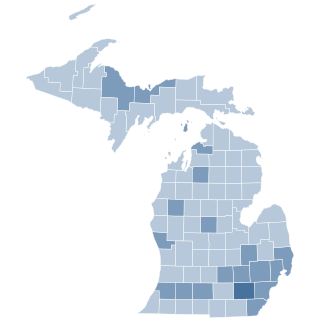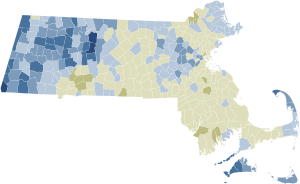Euthanasia is the practice of intentionally ending life to eliminate pain and suffering.

Assisted suicide describes the process by which a person, with the help of others, takes medications to die by suicide.
The right to die is a concept based on the opinion that human beings are entitled to end their lives or undergo voluntary euthanasia. Possession of this right is often bestowed with the understanding that a person with a terminal illness, incurable pain, or without the will to continue living should be allowed to end their own life, use assisted suicide, or decline life-prolonging treatment. The question of who, if anyone, may be empowered to make this decision is often the subject of debate.

Measure 16 of 1994 established the U.S. state of Oregon's Death with Dignity Act, which legalizes medical aid in dying with certain restrictions. Passage of this initiative made Oregon the first U.S. state and one of the first jurisdictions in the world to permit some terminally ill patients to determine the time of their own death.
Terminal illness or end-stage disease is a disease that cannot be cured or adequately treated and is expected to result in the death of the patient. This term is more commonly used for progressive diseases such as cancer, dementia, advanced heart disease, and for HIV/AIDS, or long COVID in bad cases, rather than for injury. In popular use, it indicates a disease that will progress until death with near absolute certainty, regardless of treatment. A patient who has such an illness may be referred to as a terminal patient, terminally ill or simply as being terminal. There is no standardized life expectancy for a patient to be considered terminal, although it is generally months or less. Life expectancy for terminal patients is a rough estimate given by the physician based on previous data and does not always reflect true longevity. An illness which is lifelong but not fatal is a chronic condition.
Voluntary euthanasia is the purposeful ending of another person's life at their request, in order to relieve them of suffering. Voluntary euthanasia and physician-assisted suicide (PAS) have been the focus of intense debate in the 21st century, surrounding the idea of a right to die. Some forms of voluntary euthanasia are legal in Australia, Belgium, Canada, Colombia, Luxembourg, the Netherlands, New Zealand, and Spain.
Gonzales v. Oregon, 546 U.S. 243 (2006), was a landmark decision of the US Supreme Court which ruled that the United States Attorney General cannot enforce the federal Controlled Substances Act against physicians who prescribed drugs, in compliance with Oregon state law, to terminally ill patients seeking to end their lives, commonly referred to as assisted suicide. It was the first major case heard by the Roberts Court under the new Chief Justice of the United States.
Involuntary euthanasia is illegal in all 50 states of the United States. Assisted suicide is legal in 10 jurisdictions in the US: Washington, D.C. and the states of California, Colorado, Oregon, Vermont, New Mexico, Maine, New Jersey, Hawaii, and Washington. The status of assisted suicide is disputed in Montana, though currently authorized per the Montana Supreme Court's ruling in Baxter v. Montana that "nothing in Montana Supreme Court precedent or Montana statutes [indicates] that physician aid in dying is against public policy."

Dignity in Dying is a United Kingdom nationwide campaigning organisation. It is funded by voluntary contributions from members of the public, and as of December 2010, it claimed to have 25,000 actively subscribing supporters. The organisation declares it is independent of any political, religious or other affiliations, and has the stated primary aim of campaigning for individuals to have greater choice and more control over end-of-life decisions, so as to alleviate any suffering they may be undergoing as they near the end of their life.

The legality of euthanasia varies between countries and territories. Efforts to change government policies on euthanasia of humans in the 20th and 21st centuries have met with limited success in Western countries. Human euthanasia policies have also been developed by a variety of NGOs, most advocacy organisations although medical associations express a range of perspectives, and supporters of palliative care broadly oppose euthanasia.
Barbara Coombs Lee is an American activist, author, former family nurse practitioner and physician assistant, and president emerita/senior adviser of Compassion & Choices, a national non-profit organization dedicated to expanding and protecting the rights of the terminally ill.

The Michigan Compassionate Care Initiative was an indirect initiated state statute that allowed the medical use of marijuana for seriously ill patients. It was approved by voters as Proposal 1 on November 6, 2008, 63 percent in favor to 37 percent opposed.

Initiative 1000 (I-1000) of 2008 established the U.S. state of Washington's Death with Dignity Act, which legalizes medical aid in dying with certain restrictions. Passage of this initiative made Washington the second U.S. state to permit some terminally ill patients to determine the time of their own death. The effort was headed by former Governor Booth Gardner.
Suicide tourism, or euthanasia tourism, is the practice of potential suicide candidates travelling to a jurisdiction to die by suicide or assisted suicide which is legal in some jurisdictions, or the practice of travelling to a jurisdiction in order to obtain drugs that can aid in the process of ending one's own life.

In the United States, the term "assisted suicide" is typically used to describe what proponents refer to as medical aid in dying, in which a terminally ill adult is prescribed and self-administers barbiturates if they feel that they are suffering significantly. The term is often used interchangeably with physician-assisted suicide (PAS), "physician-assisted dying", "physician-assisted death", "assisted death" and "medical aid in dying" (MAiD).

The Massachusetts Medical Marijuana Initiative, appeared as the third question on the state's 2012 ballot as an indirect initiated state statute. The measure allows cannabis to be used for medical purposes in the state. The initiative—backed by the American Civil Liberties Union, the Massachusetts Patient Advocacy Alliance, and the Committee for Compassionate Medicine—was filed with proponents turning in the required signatures to the Massachusetts Attorney General's office by the August 3, 2011 deadline. Those signatures were needed for the required ten qualified voters who submitted the original petition to put forward the full text of the law they want enacted. The initiative passed with support from 63% of state voters.
Act 39 of 2013 established the U.S. state of Vermont's Patient Choice and Control at End of Life Act, which legalizes medical aid in dying with certain restrictions. Vermont was the first state to enact this Law through legislative action; it permits some terminally ill patients to determine the time of their own death.
California End of Life Option Act is a law enacted in June 2016 by the California State Legislature which allows terminally ill adult residents in the state of California to access medical aid in dying by self-administering lethal drugs, provided specific circumstances are met. The law was signed in by California governor Jerry Brown in October 2015, making California the fifth state to allow physicians to prescribe drugs to end the life of a terminally ill patient, often referred to as physician-assisted suicide.
Three ballot measures were certified for the November 6, 2018, general election in the state of Massachusetts.











